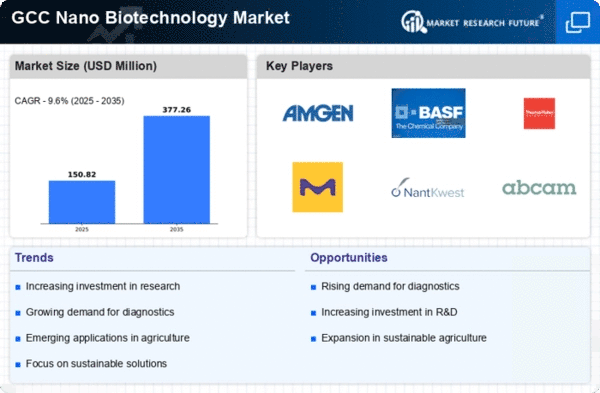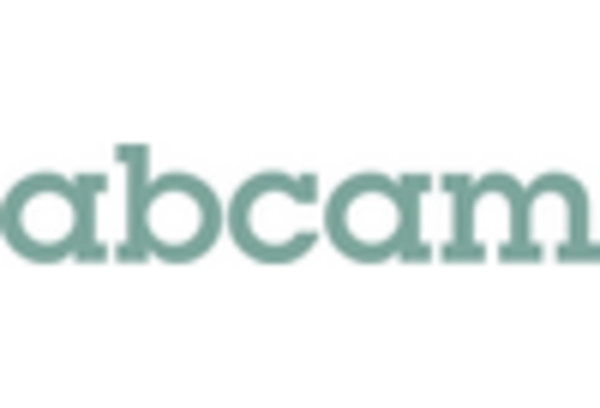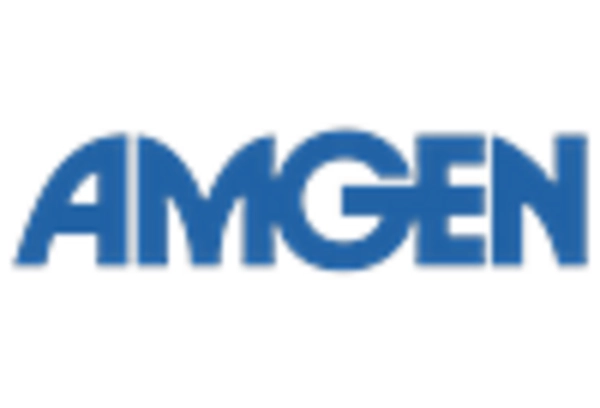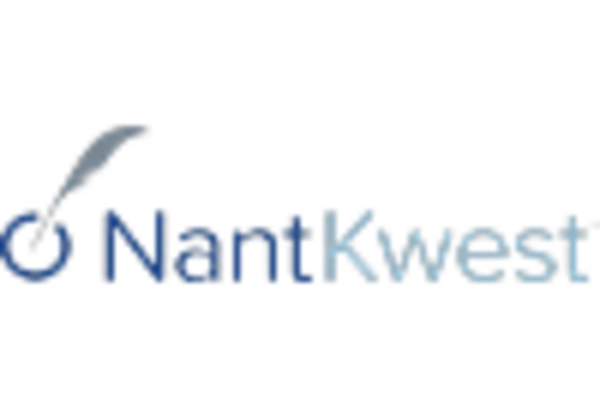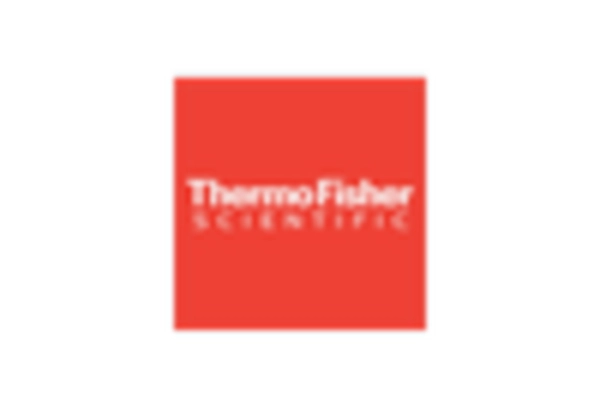Emergence of Personalized Medicine
The concept of personalized medicine is gaining traction within the nano biotechnology market. This approach tailors medical treatment to individual characteristics, needs, and preferences, often utilizing nanotechnology for drug formulation and delivery. In the GCC, the personalized medicine market is anticipated to expand significantly, with estimates suggesting a growth rate of approximately 18% annually. This growth is driven by advancements in genomics and biotechnology, which enable healthcare providers to develop customized therapies. As the healthcare landscape evolves towards more individualized treatment options, the nano biotechnology market is likely to play a crucial role in facilitating these innovations.
Advancements in Diagnostic Techniques
Innovations in diagnostic techniques are propelling the nano biotechnology market forward. The integration of nanotechnology into diagnostic tools enhances sensitivity and specificity, enabling earlier detection of diseases. In the GCC, the market for nanodiagnostics is expected to reach $1 billion by 2027, reflecting a growing recognition of the importance of early diagnosis in improving treatment outcomes. These advancements facilitate the development of point-of-care testing devices that are faster and more accurate than traditional methods. As healthcare systems in the region prioritize efficient diagnostic solutions, the nano biotechnology market is poised for substantial growth, driven by these technological advancements.
Growing Focus on Sustainable Agriculture
The nano biotechnology market is increasingly intersecting with agricultural practices, particularly in the GCC region. There is a growing focus on sustainable agriculture, where nanotechnology is utilized to enhance crop yield and reduce environmental impact. Nanoparticles are being employed in fertilizers and pesticides to improve their efficiency and reduce the quantity needed. This trend is expected to drive the nano biotechnology market, as agricultural stakeholders seek innovative solutions to meet food security challenges. The market for agricultural nanotechnology is projected to grow at a CAGR of around 12% in the coming years, indicating a robust interest in integrating nanotechnology into farming practices.
Investment in Biomanufacturing Technologies
Investment in biomanufacturing technologies is a key driver for the nano biotechnology market. The GCC region is witnessing increased funding and support for biomanufacturing initiatives, which leverage nanotechnology to produce biological products more efficiently. This trend is indicative of a broader shift towards sustainable production methods that minimize waste and energy consumption. Reports suggest that the biomanufacturing market is expected to grow by 20% over the next five years, reflecting a strong commitment to innovation in the biotechnology sector. As companies in the GCC invest in these technologies, the nano biotechnology market is likely to benefit from enhanced production capabilities and reduced costs.
Increasing Demand for Targeted Drug Delivery
The nano biotechnology market is experiencing a surge in demand for targeted drug delivery systems. This trend is driven by the need for more effective treatments with fewer side effects. In the GCC, the healthcare sector is increasingly adopting nanotechnology to enhance drug efficacy and minimize toxicity. Reports indicate that the market for targeted drug delivery is projected to grow at a CAGR of approximately 15% over the next five years. This growth is attributed to advancements in nanocarrier systems, which allow for precise delivery of therapeutics to specific cells or tissues. As healthcare providers seek innovative solutions to improve patient outcomes, the nano biotechnology market is likely to benefit from this increasing demand.


